ReBlogged from: Feminéma
feminism, movies, pop culture
“Orange is the New Black” has the best antagonist ever. It’s a woman.
10 August 2014
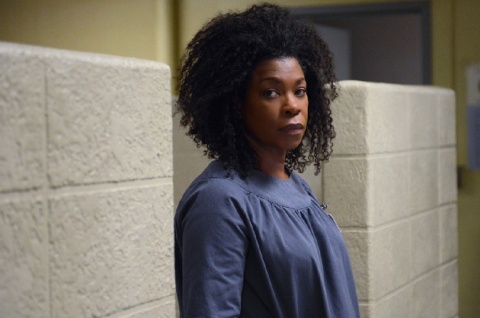
This is Lorraine Toussaint as Yvonne “Vee” Parker. We might call her a new character inOrange is the New Black‘s second season, but she’s well-known to two of Litchfield’s current inmates… for complicated reasons. She is the best female antagonist I’ve ever seen, and one of the best antagonists ever.
To Taystee (Danielle Williams), Vee is the foster mother who finally gave her a home. Sure, that home was the locus of a powerful drug corporation. But Vee knew how to inspire loyalty and a sense of family — and we can see her use exactly the right strings to pull Taystee back, to transform her into the loyal soldier she used to be before prison.
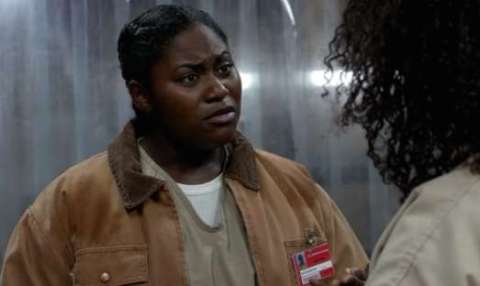
In flashbacks we learn exactly how Vee has earned such loyalty from Taystee: by providing exactly that feeling of belonging and family — as well as just the right dose of race pride — that her life lacked beforehand. Moreover, Vee is the best possible “mother”: smart, powerful, admirable. The fact that she runs a drug empire is incidental to her maternal effects on the lonely Taystee.
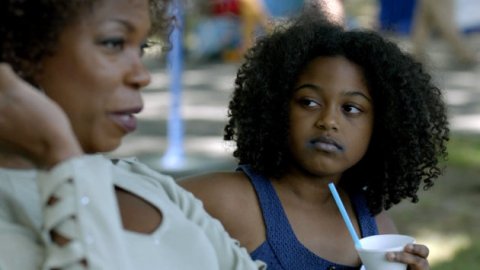
Once Taystee is on board, Vee pursues the loyalty of a small group of other young Black women to build her prison “family” — using a variety of the same techniques carefully calibrated to each woman (maternal gentleness, tough love, gestures to racial unity and vague promises of uplift and power). But not Taystee’s gay best friend Poussey (Samira Wiley, whom the New Yorker‘s Emily Nussbaum aptly describes as “radiant”). Vee persuades Taystee to join in the exclusion and demonization of Poussey, a mean-girl process so real and devastating that I almost couldn’t watch those scenes.
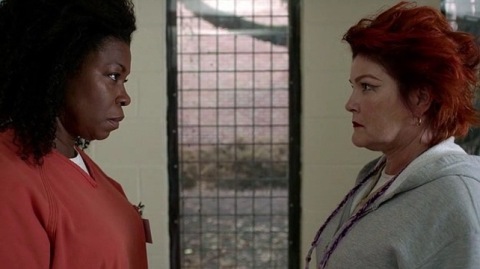
Red (Kate Mulgrew) also has a history with Vee, but in her case it goes back to earlier prison days as competitors for control of the prison’s black market. Witnessing Red’s anxiety about talking to the leonine Vee for the first time gives us an insight into her character that we hadn’t seen before: for the first time in years, she worries that her aging will lead Vee to sniff out her weakness. In anticipation, she visits Sophia’s salon to amp up her fierceness.
And yet when they meet, they embrace warmly, like old friends.
Indeed, it is Vee’s capacity to convey warmth and insight that makes her so powerful, and so capable of deception. Witness her effect on the perpetual outsider, Suzanne “Crazy Eyes” (Uzo Aduba). She insists on calling her Suzanne. With a few correcting glances from Vee, Suzanne stops undermining herself and her mental stability, and speaks with new confidence. Under to heat of that seeming maternal affection and guidance, Suzanne glows like a light bulb and happily serves as Vee’s henchman, the muscles to Vee’s brains.
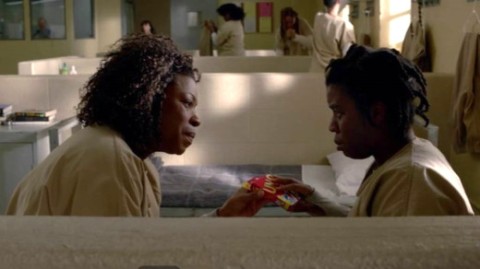
With everything else going on for me this summer, it took me forever to finish Season 2 — but throughout I marveled at the manipulative twists and maneuvers of Vee, who is the best antagonist I’ve seen in FOREVER. And it’s partly such a great character because she’s a woman who has learned to use people’s assumptions about her to her advantage. Think about it: we love a good bad guy — Alan Rickman in Die Hard, Heath Ledger as the Joker in The Dark Knight, Kevin Spacey as the horrifically Bible-obsessed baddie in Se7en — but when was the last time you saw a female antagonist worth remembering, for all the reasons why women learn how to extract power and manipulate others using their femininity?
But don’t get me wrong: this is not just a portrayal of a great female antagonist. This is the best antagonist in years, full stop.
Feast your eyes, friends.
No comments:
Post a Comment